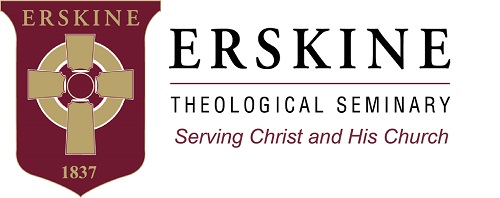The Master of Divinity (MDiv) is a professional ministerial degree that equips people for pastoral leadership and service in churches, Christian ministries, and chaplaincy contexts, especially for ministerial settings that require ordination. The MDiv also prepares people for advanced theological degrees (e.g., ThM, DMin, and/or PhD). The degree provides a broad and integrated curriculum of foundational studies in Bible, theology, Church history, and the practice of ministry. The MDiv degree is 90 credit hours.
Program Director
Winston, Richard W.
Director of the MATS, Th.M., and M.Div. Programs
Dr. Richard Winston holds a PhD in New Testament from Central Baptist Theological Seminary (Plymouth, Minnesota). He is an ordained minister in the Presbyterian Church of America (PCA) and previoulsy…
Foundational
- BI 501 Bible Survey or BI 080 Bible Challenge Exam*
- BI 502 Principles of Exegesis (required of first-year students)**
- PM 502 Christian Vocation and Transformation
*BI 501 Bible Survey is required of first-year students who have not passed the Bible Challenge Exam.
**Students must have successfully completed BI 502 to earn “exegesis credit” for Bible electives and normally should have completed OT and NT survey courses.
Departmental
- CH 501 Early and Medieval Church History
- CH 502 Reformation and Modern Church History
- ST 601 Systematic Theology I
- ST 602 Systematic Theology II
- ST 603 Systematic Theology III
- Ethics elective
- Missions/Contextualization elective (any MS course, or PM 742, PM 745, ST 780)
- Theology/Church History elective or denominational history and/or doctrine course
- OT 501 Old Testament I
- OT 502 Old Testament II
- NT 601 New Testament I
- NT 602 New Testament II
- Bible elective*
- OT Exegesis elective
- NT Exegesis elective
*Students who pass the Bible Challenge Exam must take an additional Bible elective in lieu of BI 501 Bible Survey.
- PM 505 Educational Ministries in the Local Church
- PM 507 Evangelism
- WP 650 Introduction to Preaching
- WP 651 Christian Worship
- PM 704 Christian Leadership and Church Administration
- PM 608 Pastoral Care and Counseling
- PM 705 Supervised Ministry or PM 774 Clinical Pastoral Education I (CPE I)
Electives
- PM 775 Clinical Pastoral Education II (CPE II) can be taken as a Ministry elective
- Language courses (required by ARP Church and other presbyterian denominations)
- Denominational courses
*The Seminary recommends that students take 6-9 hours of Greek and/or Hebrew.
- Admission
Applicants must have completed a baccalaureate degree at an accredited institution with an acceptable grade point average. (See “Admissions” for details.) - Graduation
Students must complete 90 semester hours for the standard MDiv with a cumulative GPA of 2.0 or higher. The program may be completed in as little as three years of full-time study. Students must normally complete the program within nine years. - Transfer
Students who already possess a MATS or MAPM degree from Erskine Theological Seminary or equivalent degrees from other accredited seminaries or graduate schools may transfer most if not all those courses toward an Erskine MDiv degree.
Student Learning Outcomes
In dependence upon the grace of God, Master of Divinity (MDiv) graduates will be able to:
- Articulate (both orally and in writing) the essential biblical, theological, historical, cultural, and ministerial concepts necessary for a lifetime of learning and effectiveness in pastoral ministry. (Articulation and Essentials)
- Interpret the Bible within its canonical and historical contexts and apply the message of the Bible to contemporary life through preaching, teaching, and pastoral care, while drawing upon the Church’s theological and historical heritage. (Interpretation and Application)
- Discuss graciously the essentials of evangelical Christianity and the Reformed theological tradition within the contexts of diverse ecclesiologies, contemporary cultures, and global Christianity. (Evangelical and Reformed)
- Demonstrate the ability to theologically evaluate and pastorally address contemporary issues in the Church and the world. (Theological and Pastoral Integration)
- Demonstrate love for Jesus Christ and growth in sanctification toward personal, relational, and spiritual maturity appropriate to pastoral ministry. (Sanctification)
- Demonstrate competence for faithful and effective pastoral leadership in the Church and its mission to the world, through preaching, teaching, worship leading, evangelism, pastoral care, and administration. (Pastoral Leadership)

